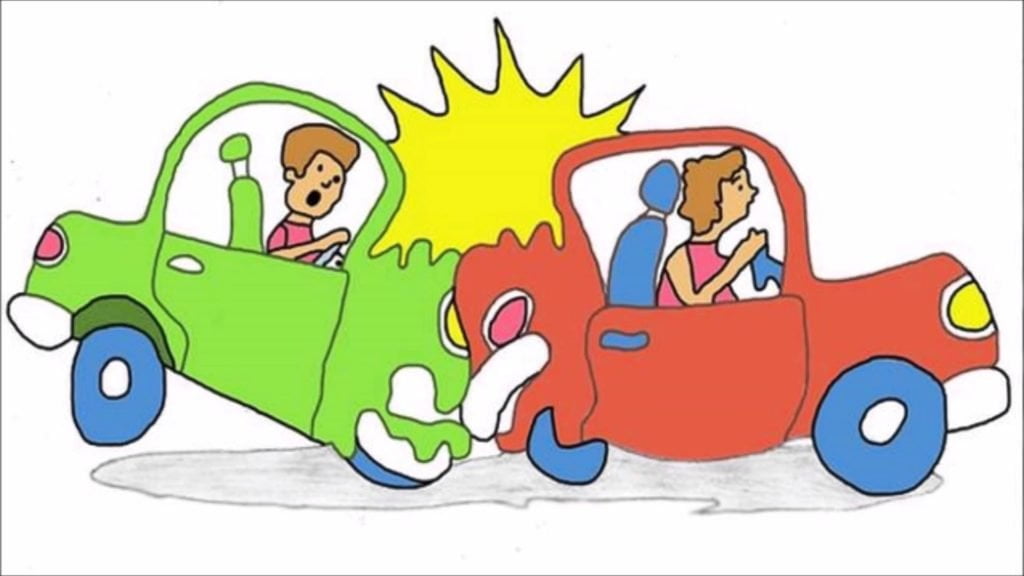
From fractures to whiplash, how a car accident can leave long-lasting damage
In the same way that each car accident is different, car accident injuries also differ from person to person and range from minor scrapes and cuts to fractures and concussions. Accidents can also be a trigger for or incite changes in one’s mental health. At Backs in Action, we understand that each set of injuries is as unique as the person who is suffering from them. This is equally true of each person’s recovery journey. This is why we create customized and tailored treatment plans to get you back on your road to wellness.
Despite these differences, there are some injuries that are more common than others. Here, we discuss these along with a recommended set of treatment options. Did you know in British Columbia, you are covered for 12 weeks of treatment for chiropractic care, physiotherapy, massage, acupuncture and counselling services for zero or little cost to you.
If your car accident occurred within the last three months, you don’t need a doctor’s note to get access to care. However, if the 12-week mark is fast approaching or it’s been longer than three months since your motor vehicle accident, we suggest seeing your family doctor for a referral to a particular discipline before booking in to ensure you are covered. We are also happy to work with your out-of-province insurer to ensure you get the care you need without the financial worry.
What Factors Can Affect the Seriousness of my Injuries?
The severity of a motor vehicle accident (MVA) is determined by the impact of the crash. This is influenced by the speed and the direction that the car or cars were travelling when they crashed. Other factors include:
- How many cars were involved in the crash
- Road conditions (wet or icy roads can cause more severe crashes)
- Your position in the car (driver or passenger) and which side the car was hit on
- Whether you were wearing a seatbelt (we hope you always do!)
- How quickly after the accident you seek medical treatment
Medical practitioners recommend seeking treatment for minor injuries sooner rather than later. A minor injury is described by ICBC and BC government as including:
“sprains, strains, general aches and pains, cuts, bruises, road rash, minor whiplash, temporomandibular joint disorder (TMJ) – pain in your jaw joint and in the muscles that control jaw movement – mild concussions and short term mental health conditions.”
At around 90 days since the date of injury, scar tissue can start to form and make recovery much harder. That’s why it’s important to start treatment in the first few weeks after an accident. Below are some of the most common injuries our patients at the clinic come in for.


Whiplash
You’ve probably heard of whiplash and its association with car accidents. But do you know its causes and symptoms? Whiplash occurs when a car comes to a sudden stop that your body wasn’t expecting. The sudden jerking back and forth causes the muscles and tendons in your neck to stretch and sometimes tear, causing pain. Symptoms include an aching or tight sensation in your neck muscles, pain when turning your head, stiffness, and restricted s movement in your neck. Just because you don’t feel these symptoms straight away doesn’t mean you don’t have whiplash; sometimes it can take days or hours before you feel any pain.
Treatment options have changed over the years, and it’s no longer recommended to keep your neck immobilized in a neck brace. Instead, it’s recommended that you ice your neck in the first few days after your injury. This reduces swelling and promotes blood flow to the injured area. After the first week or so, you can usually start controlled movements, stretches, and exercises to promote healing and recovery. This should be led by a trained therapist, like a physiotherapist or chiropractor.
Soft Tissue Injuries
Soft Tissue is the connective tissue in your body, including muscles, nerves, ligaments, and tendons. Soft tissue is usually the most common type of injury during an accident as it makes up a large part of your body. In the same way that whiplash jerks the neck backward and forwards, this motion can affect other parts of your body such as your mid back, low back, and shoulders. The soft tissue in these areas becomes aggravated and inflamed, causing muscle spasms and pain. Treatment can involve massage techniques, manual manipulation of joints and muscles, stretches and exercises.

Concussion
Contrary to popular belief, you don’t have to have lost consciousness to suffer from a concussion, although sometimes people do lose consciousness. A concussion is a mild traumatic brain injury that occurs when your brain is ‘rattled’ within your skull, usually when it’s thrown around in an unusual way such as a car accident. Symptoms of a concussion range from memory loss, to dizziness and nausea, headaches, and problems with balance. Treatment options vary depending on the severity and duration of the concussion; in its most severe case, concussion may need to be treated with Vestibular Therapy exercises. Read more on Vestibular Therapy here.
Bone Injuries:
It’s not just breaks and fractures that can impact your skeletal system in an accident. Joint trauma and ligament damage are other examples of injuries to your bones and surrounding areas. This can lead to aches and pain, difficulty walking or moving, stiffness, and reduced range of motion. Not only is this painful and uncomfortable, but it can affect your day-to-day life and ability to complete simple tasks. Common bone and joint injuries include:
- Neck
- Shoulders
- Elbows
- Spine and ribs
- Hips
- Knees
- Ankles
In the first instance, you might want to try physiotherapy to increase the range of motion and reduce pain. Your physiotherapist can use a variety of manual techniques to mobilize joints and aid recovery. Chiropractic care is also a good option for neck and spinal injuries. Your chiropractor can adjust the vertebrae in your neck and spine to reduce inflammation, ease pain and increase your range of motion depending on the underlying issue. If you have done any medical imaging such as x-rays or MRIs and have access to them, you should bring them to your appointments. We can also arrange for your medical practitioner to send them to us.
Click here to book a physiotherapy appointment
Click here to book a chiropractic appointment

What Other Treatment Options Do I Have?
At Backs in Action, we believe in a multidisciplinary approach to healthcare, to ensure a speedy and well-balanced recovery. We also understand that every patient and every injury is different. Treatment isn’t just one-size-fits-all. This is why we offer so many different treatment types under a single roof, all in a convenient location in East Vancouver. Offering a range of disciplines allows for multiple health care specialists to offer their professional advice and collaborate together. Also, what works really well for one patient might not be the best fit for another. Having multiple treatment options in one location allows us to refer and work together for the best outcomes for the patient. In addition to physiotherapy and chiropractic care, we also offer acupuncture and massage therapy to help reduce pain symptoms and repair the damage causing the pain.
Read more on how acupuncture can help here.
Read more on the benefits of massage therapy here.
Mental Health Effects:
Most people only think of the physical after-effects of a car accident, but let’s not forget it can also take a toll on mental health. The trauma of being in an accident can lead to anxiety, depression, traumatic flashbacks, and stress about finances and time off work. It’s just as important to seek treatment for the emotional effects of an MVA as it is to seek treatment for physical injuries.
For more information on the effects of a crash on your mental health, click here.
What Treatment Will ICBC Cover Me For?
The great news is, ICBC will be covering all of the treatments we offer without needing approval from an adjuster or claims specialist from April 1st 2019! We will be able to direct bill the cost of each treatment directly to ICBC, taking the hassle and stress of financial worries out of the equation!
For a breakdown of ICBC changes to your healthcare after an accident, click here.
Click here to book an appointment and get yourself on the road to recovery.

